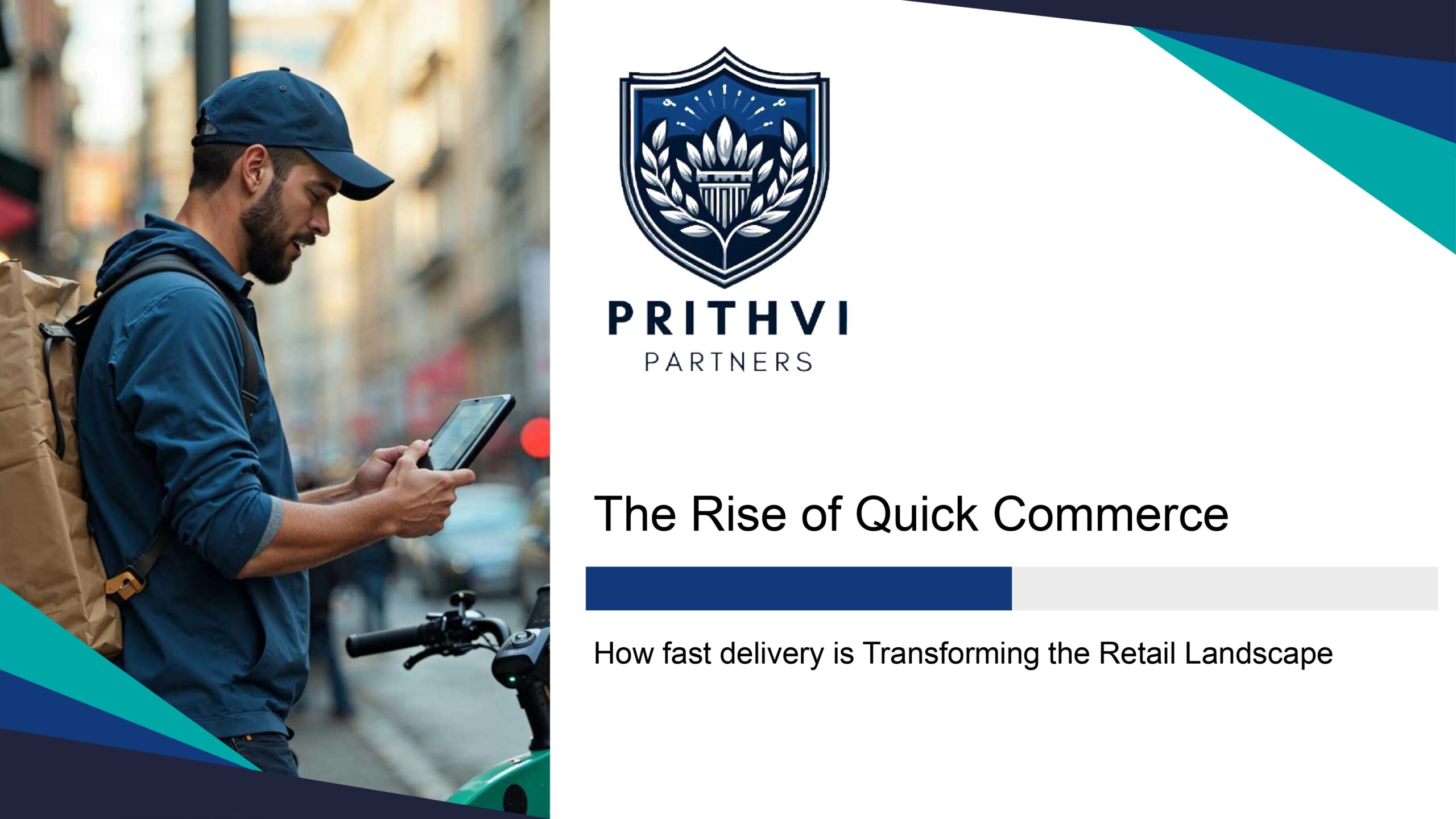The Rise of Quick Commerce: How Fast Delivery is Transforming the Retail Landscape
Quick commerce (Q-commerce) has rapidly emerged as a transformative force in the e-commerce industry, with consumers demanding faster deliveries for everything from groceries to personal care items. At its core, Q-commerce is about delivering products within minutes, meeting the growing expectation for speed and convenience in an increasingly fast-paced world.
One of the key players in this growing sector is Zepto, a startup that has capitalised on the need for ultra-fast grocery deliveries. Since its launch in 2021, Zepto has disrupted the grocery delivery market in India by offering products within 10 to 30 minutes. Their success is driven by a model built around localised “dark stores” and an efficient, tech-driven supply chain. This allows Zepto and other Q-commerce companies to deliver products quickly, ensuring a seamless and speedy experience for consumers.
However, Zepto is far from the only company embracing Q-commerce. As demand for fast delivery continues to rise, other industries—such as healthcare, electronics, and fashion—are also adopting the quick commerce model, offering everything from prescription medicines to electronics delivered in under an hour. Companies are utilising AI, automation, and real-time data tracking to streamline inventory management and optimise last-mile delivery logistics.
Q-commerce is more than just a trend; it is a response to shifting consumer expectations. Today’s consumers are increasingly focused on instant gratification, driving the demand for services that prioritise speed without compromising on quality. Whether it’s a grocery delivery from Zepto or a pharmacy item delivered by another player in the market, the growth of Q-commerce signals the future of retail—where convenience, speed, and technology converge.
The expansion of Q-commerce shows no signs of slowing down, and as competition intensifies, companies are continually innovating to meet consumer needs faster and more efficiently. This shift is reshaping how businesses approach logistics, customer service, and even product offerings.


